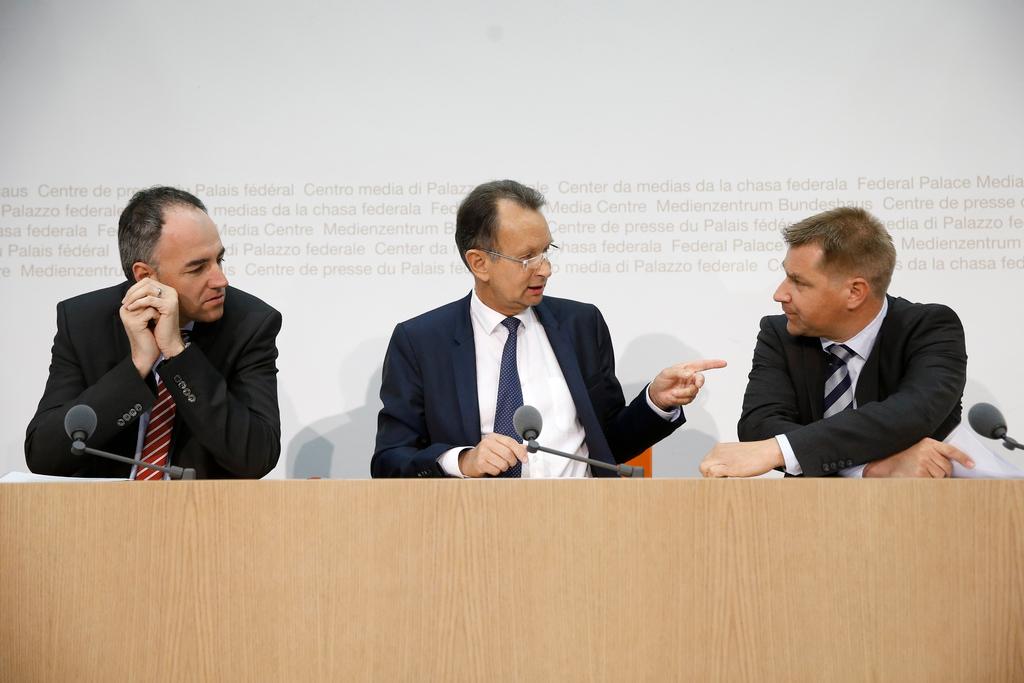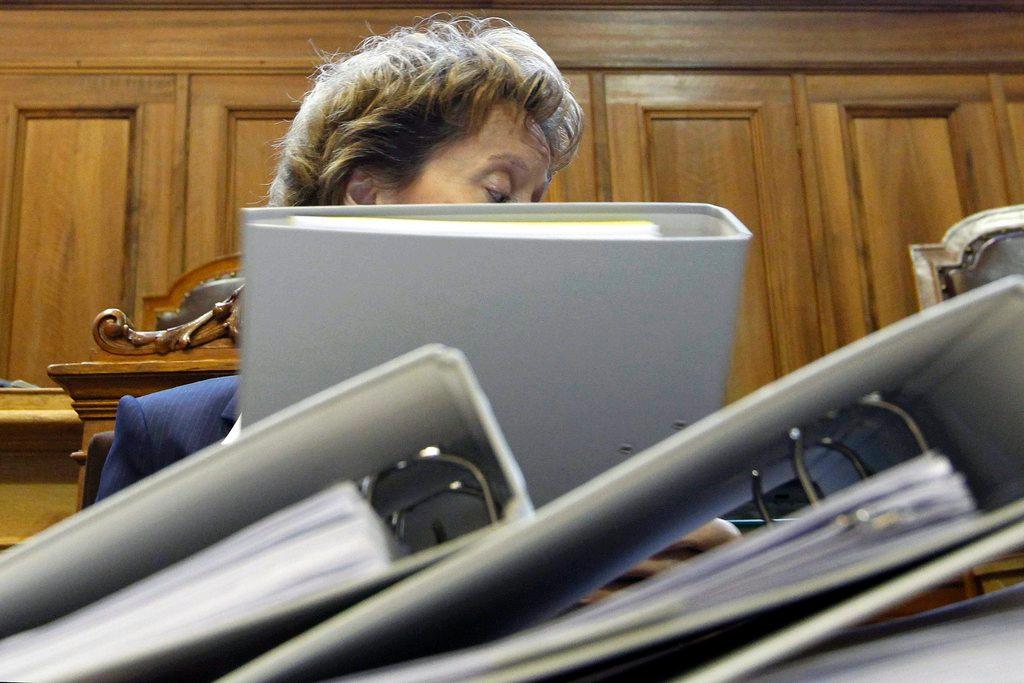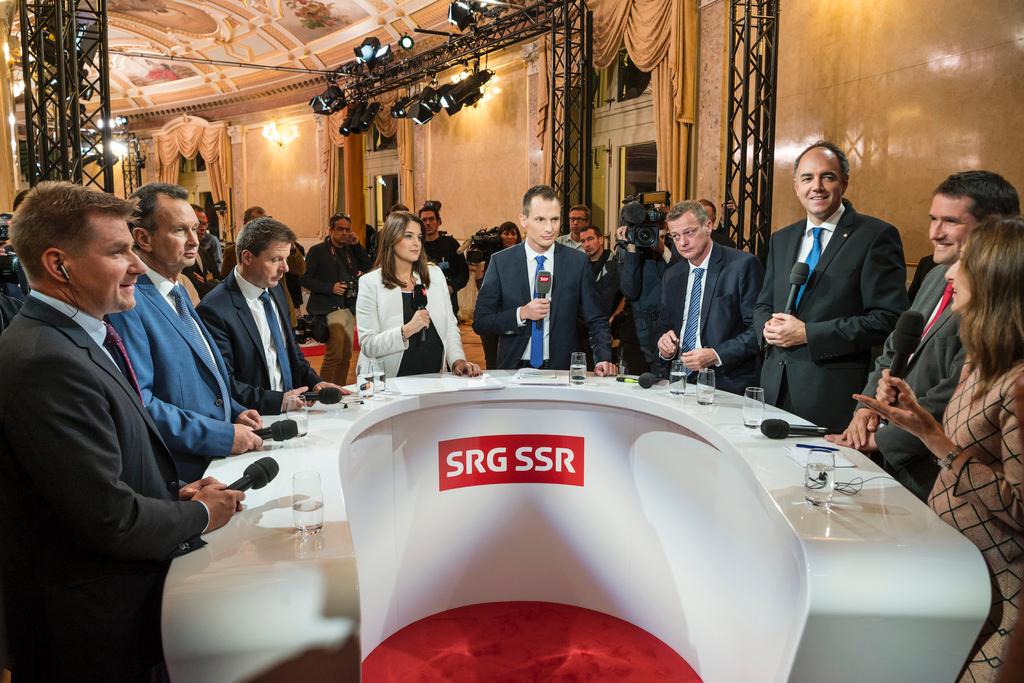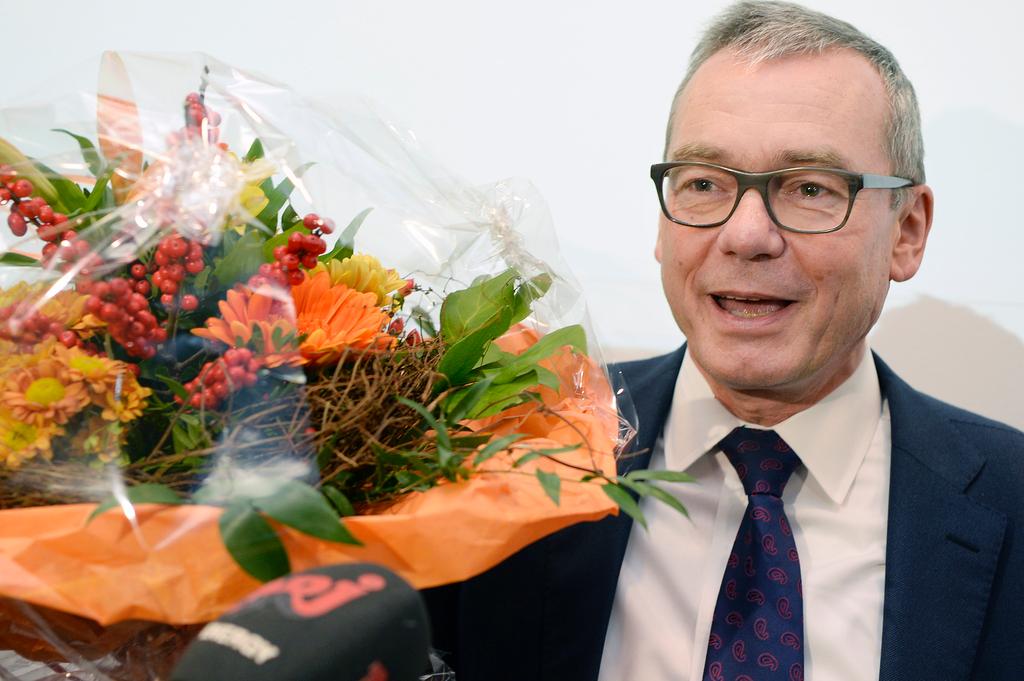New faces for main parties but hardly new policy

The planned changes at the helm of Switzerland’s biggest political party, dominated by strongman Christoph Blocher, is unlikely to herald a new era in politics. The conservative right Swiss People’s Party joins two of the country’s other main parties in changing their leadership.
“The People’s Party has been streamlined and there are no longer major dissenting voices,” says Georg Lutz, External linkpolitical scientist at the University of Lausanne.
He is not in the least surprised by the latest announcements over the weekend.
Lutz says it makes perfect sense to seek a renewal of the leadership three months after the elections, which saw the rightwing party winning a record 65 seats in the 200-member House of Representatives.
Although a president of a political party in Switzerland is less powerful than in many other countries – as he or she is neither in the government nor leader of the opposition – it is a tough and time-consuming task, says Lutz.
A 24-hour availability for an often only modest salary takes its toll, it is widely agreed.
Toni Brunner announced his resignation on Saturday after eight years as president of his party and apparently no ambition to be elected to Switzerland’s seven-member multi-party cabinet.
Brunner’s counterparts, Christophe Darbellay of the centrist Christian Democratic Party and Philipp Müller of the centre-right Radical Party, are stepping down this year too.
Strongman
There is little doubt that Blocher will still call the shots within the People’s Party, despite his announcement that he too was withdrawing from the party leadership.
The controversial 75-year-old billionaire has made it clear he has no plans of retreating from the political fray and that he will continue to fund political causes close to his heart, including his anti-European Union stance and his populist campaign against the political elite.
“I won’t leave Switzerland or the People’s Party in the lurch,” Blocher is quoted in the Monday edition of the Blick newspaper.
Political scientist Lutz says it is hard to imagine Blocher giving up his influential position other than for health reasons.
“He still has an unbridled will to shape policy. Ultimately Blocher has always had his way with the People’s Party in the past two decades,” Lutz says.
Style
The designation of Brunner’s successor as party president is scheduled for April, but the decision is said to be a done deal even before the formal election by delegates.
Critics argue the procedure as quasi-dictatorial and in apparent contradiction with the party’s image as a beacon of democracy.
The race for the presidential seat in the two other main political groups – the Radicals and the Christian Democrats – is not decided yet, at least from an outsider’s point of view.
Lutz, for his part, downplays the criticism. “The People’s Party has been run in this style for a long time with a highly professional leadership as shown in the campaign in the run-up to the cabinet elections in December.”
The group re-captured its second seat in the cabinet following a major internal dispute within the party eight years ago.
Strategy
Whether the new appointments within the People’s Party as well as at the top of two other parties in government will have much visible impact remains to be seen. Only the leftwing Social Democratic Party shows no sign of changing its president.
The designated new head of the People’s Party, Albert Rösti, not only pledged to continue the hardline policies of his predecessors. Rösti, a Swiss German speaker, is said to find it easier than Brunner to communicate in the country’s other languages.
Despite this apparent personal advantage, Lutz does not believe the choice of Rösti is a strategic move to boost the standing of the People’s Party in the French-speaking part of the country.
“He seemed a logical choice. He proved himself a clever and successful manager of the party in the 2015 parliamentary elections,” Lutz said.
A trained agricultural engineer with professional experience in administration and lobbying, Rösti goes well with the party’s traditional image as representative of rural Switzerland, according to Lutz.
Yet there are doubts whether the general changing of the guards will result in closer ties between the three parties on the right which in the past often made no bones about their policy differences.
“On a strictly personal level a new start may seem possible,” says Lutz. But it is another matter from a political and strategic perspective.
“A closer cooperation would only work if the People’s Party were willing to compromise,” he says.
The rightwing group is fighting a lone battle to curb immigration from countries in the EU, potentially jeopardising relations with Switzerland’s main trading partner.
Its strict opposition to a reform of asylum procedures, approved by parliament last year, did not win the party many friends in Switzerland’s consensus-driven political system either.

In compliance with the JTI standards
More: SWI swissinfo.ch certified by the Journalism Trust Initiative




You can find an overview of ongoing debates with our journalists here. Please join us!
If you want to start a conversation about a topic raised in this article or want to report factual errors, email us at english@swissinfo.ch.